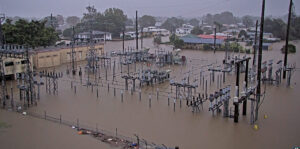by Richard Denniss
[Originally published in the Australian Financial Review, 16 April 2019]
Scott Morrison hopes he can make voters as scared of electric cars as he made them of refugees. It’s a tough ask but credit where it’s due: given his party managed to make a swath of voters afraid of wind turbines and fibre optic broadband, you shouldn’t write him off just yet.
Technophobia has become the new protectionism and the right wing of Australian politics has become its strongest adherent. Gone are the days when the free marketeers in the Liberals backed science and innovation as the engine of productivity growth while the Greens fretted about the risks of GM crops. These days even self-described modern Liberals are afraid of the future.
According to the Liberals, if Australians start buying as many electric cars as the Norwegians already do, then we’ll be beset by blackouts and breakdowns. Scott Morrison even warned voters that Bill Shorten’s electric vehicle targets would “end the weekend”. What next, plagues of locusts?
Technological change drives the productivity growth that the Coalition says it is so keen on. The mining industry has invested a fortune inventing driverless trucks and trains it hopes will slash its labour costs. Similarly, industrial farms are hoping to replace their tractor drivers with driving by GPS. And, of course, the demise of traditional pay packets and the rise of mobile banking has been as devastating for clerks and tellers as it has been profitable for the big banks.
The NRMA, Toyota and Hyundai were quick to slap down Morrison’s silly comments about electric vehicles for the simple reason that big business is firmly on the side of technological change. You’d think the Prime Minister’s marketing background would help him realise that the whole business model of the car industry is to use new gadgets to get people to replace perfectly good cars with cool new ones. As The Australia Institute’s polling shows, an overwhelming majority of people are looking forward to driving clean, quiet electric cars.
The role that new technology plays in a modern economy cuts deep into the internal divisions of the Liberal National Coalition. Morrison isn’t allowed to dwell on what makes some voters in Sydney and Melbourne fork out upwards of $60,000 for a new car every few years, when he has Nationals like Barnaby Joyce and Matt Canavan fighting with One Nation for the votes of low-income constituents living in weatherboard and iron.
While scaring those in insecure low-paid jobs about the threat new technology poses isn’t hard, doing so in a way that doesn’t scare the business community and those aspiring to own their first electric car, is a much harder trick.
Malcolm Turnbull succeeded in convincing voters they had little to fear from new technology, but he failed dismally to convince the right-wing shock jocks, the fossil fuel industry or the Queensland Nationals. Morrison succeeded in quieting the shock jocks but he’s failed to win over the electorate, particularly younger voters, female voters, or voters who take climate change seriously. That’s a lot of voters.
Climate change isn’t just a long-term environmental issue, it’s a long-run political issue. Every year the scientific evidence of the dangers of climate change becomes clearer, and every year renewable energy, smart phones, movie downloads and electric cars become cheaper. But for reasons best known to itself, the Coalition seems determined to insult young people who strike for climate action, dismiss middle-class voters who care about climate change as ‘elites’ and dismay big businesses trying to make a buck selling new stuff.
It’s hard to predict the future, but there are some things we already know. When mining companies replace workers in regional Australia with robot trucks the Coalition will support the companies. And there’s no doubt that the silly things the Coalition is saying about electric cars, renewable energy and battery storage will haunt it for years to come.
After the “budget emergency”, the $100 leg of lamb, the Whyalla wipe out and the claim that equal marriage would be a nightmare for wedding cake bakers, the scariest thing is that some in the Coalition think this war against the future might actually work.
Richard Denniss is chief economist at The Australia Institute
Between the Lines Newsletter
The biggest stories and the best analysis from the team at the Australia Institute, delivered to your inbox every fortnight.
You might also like
End of the LNP Coalition would makes this the largest crossbench in the post-WWII era
A large crossbench might seem unusual, but before WWII they were commonplace in Australia.
Climate crisis escalates cost-of-living pressures
A new report has found direct connections between the climate crisis and rising cost-of-living pressures. Failure to lower emissions now will only aggravate the crisis, with each moment of inaction compounding the pressure on households.
Ensuring workers’ safety in the climate crisis
As I watched the fires in Los Angeles unfold in January this year, my mind of course reflected on the 1999-2000 Black Summer bushfires in Australia. Both these seasons have wrought significant damage to humans and other animals, and to land, infrastructure and property. There has been a huge personal, collective and financial toll involved.


